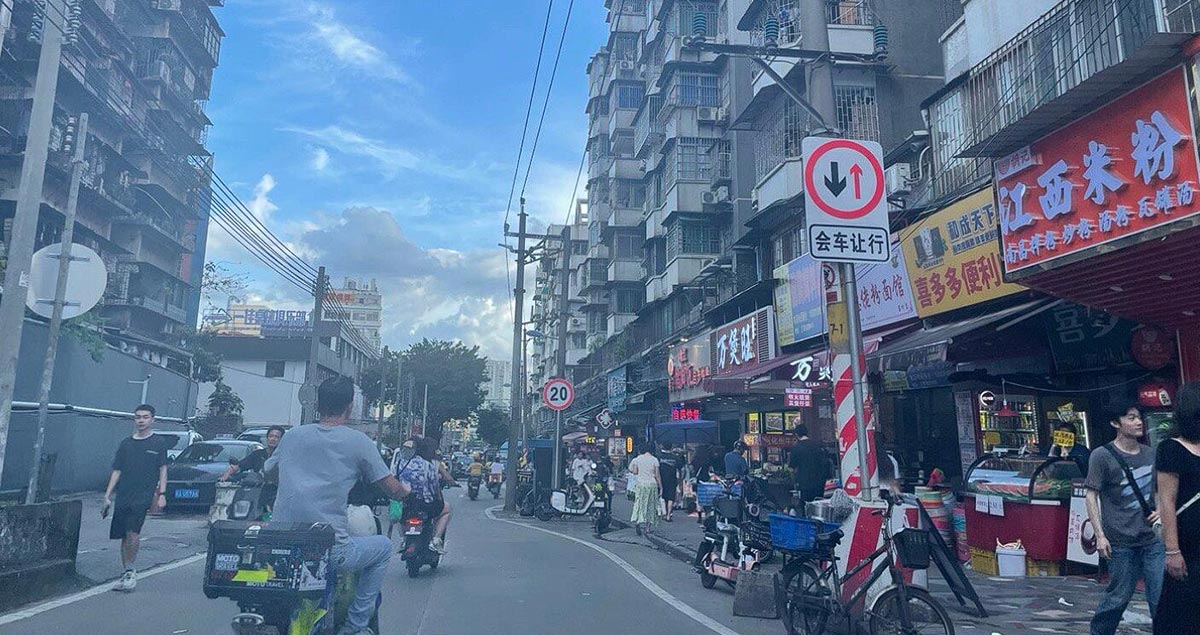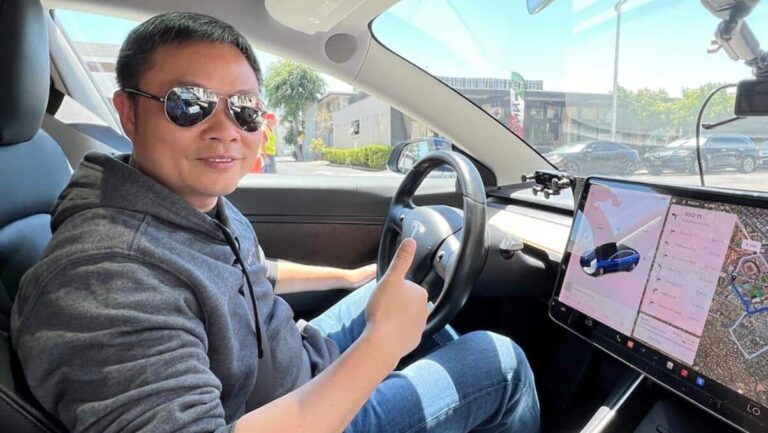In central Guangzhou, for example, about 30 percent of roads don't have bike lanes, and e-scooters need to use the same roads as motor vehicles.

Regulatory hurdles aside, Tesla (NASDAQ: TSLA) will face one major obstacle after bringing FSD (Full Self-Driving) to China -- more than 300 million e-scooters.
That's the view of Xpeng's (NYSE: XPEV) head of autonomous driving, Li Liyun, who said on Weibo today that FSD will have a hard time handling the 300 million electric scooters in the country.
It's an interesting topic because China's road conditions are much more complicated compared to the US, he said.
China has a severe shortage of dedicated lanes for non-motorized vehicles, with about 30 percent of roads in central Guangzhou, for example, having no non-motorized lanes, Li said.
Guangzhou is where Xpeng is headquartered, and CnEVPost had experienced Xpeng's XNGP (Xpeng navigation guided pilot) in the city, where the car often needs to be driven alongside electric scooters.
In China, it is common for electric scooters to occupy motor vehicle lanes, so one of the headaches Tesla's FSD will have to face once it enters the country will be the vehicle gaming with non-motorized vehicles, including electric scooters, Li said.
However, this is people's daily life scenarios, and a good smart driving experience needs to be optimized for these scenarios, he said.
In China, the performance of a smart driving system needs to be judged by its ability to game such scenarios, Li said.
For Xpeng, the company's smart driving capabilities were validated in cities including Nanning, Guangzhou, Kunming and Nanchang in such complex scenarios, according to Li.
XNGP has a proven solution in its game with electric scooters and the balance for their protection, he said.
Li also mentioned that the next version of XNGP will be available to users in July, bringing the integration of end-to-end large model technology to more scenarios.
In China, electric scooters are the main tool for short-distance travel.
There were 350 million electric scooters in China, and the country produced 42.28 million of such products in 2023, according to data released on April 7 by China's Ministry of Industry and Information Technology.
Progress over the past few months suggests that Tesla FSD is getting closer to officially entering China.
On May 30, Reuters reported that Tesla was preparing to register its FSD software with Chinese authorities in order to launch the feature this year as planned.
On June 14, local media outlet SH Observer cited a Shanghai official as saying that Shanghai's Nanhui New Town was facilitating 10 Tesla vehicles to carry out a pilot of FSD.
Earlier this month, He Xiaopeng, chairman and CEO of Xpeng, visited the US and experienced Tesla's FSD.
The Tesla FSD performed extremely well in Silicon Valley and on highways, allowing for high scores and smooth handling of many road conditions, Mr. He said on June 25 on Weibo.
He also mentioned at the time that there are around 300 million electric scooters in China, and they are fast and often traveling against traffic, which can be challenging for self-driving vehicles.
